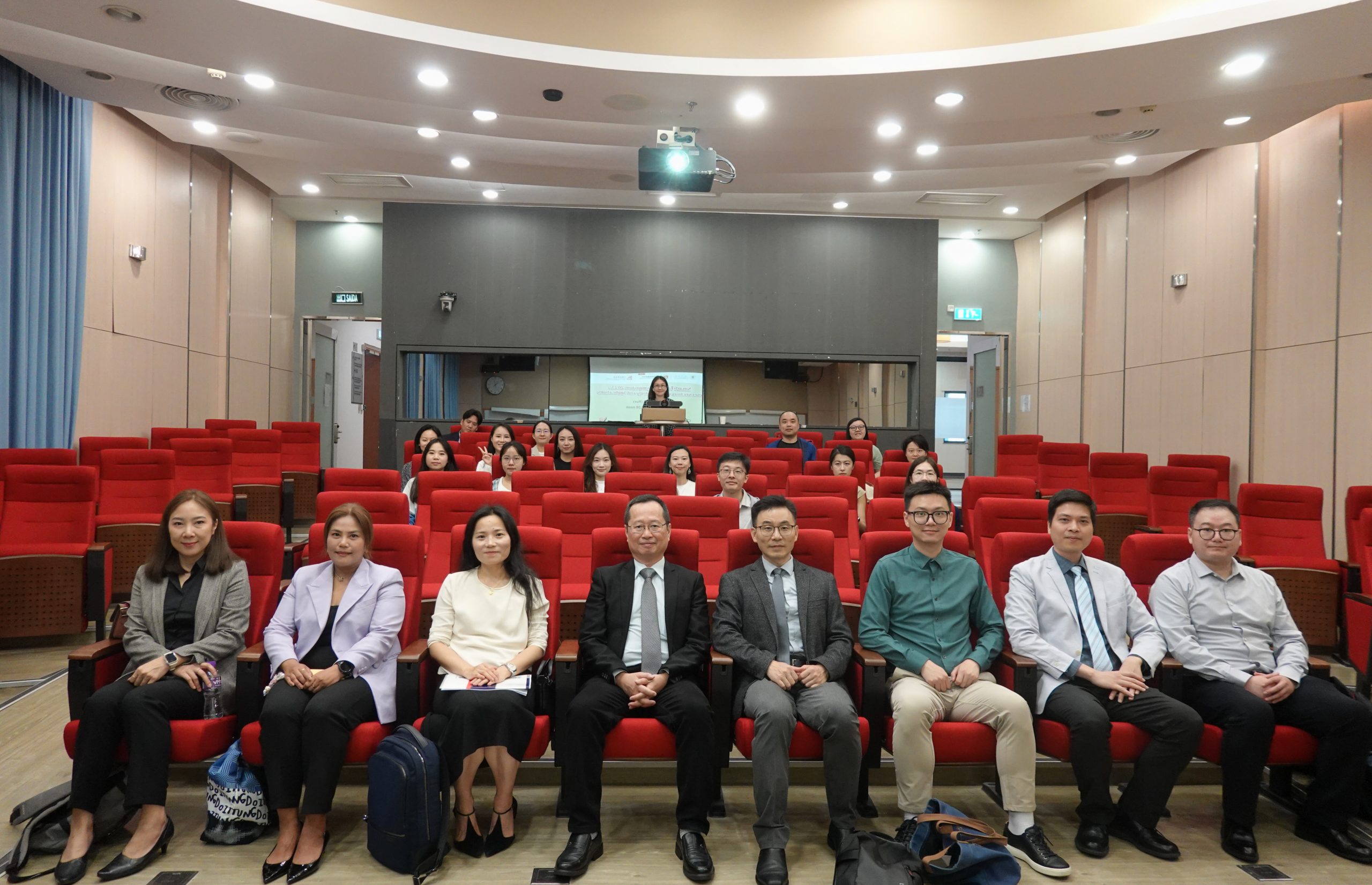
(First row from left) Dr. Arinya Pongwat, Prof. Chitlada Pinthong, Prof. Liang Wang, Prof. Rob Law, Prof. Gang Li, Prof. Ye Wang, Prof. Quan Vu, and Dr. Chris Zhang
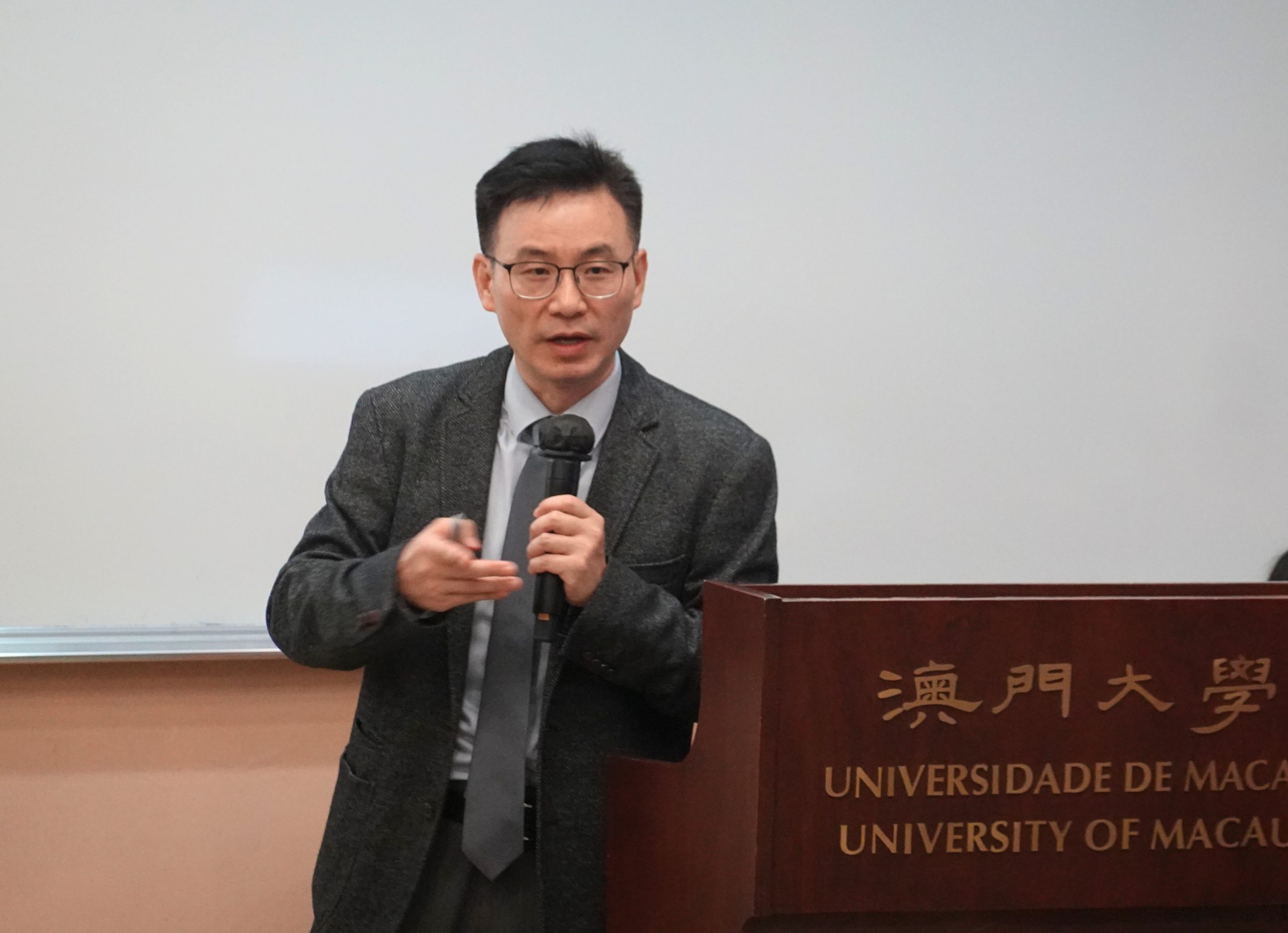
Prof. Gang Li proposed an innovative AI framework that combines counterfactual reasoning and sentiment analysis
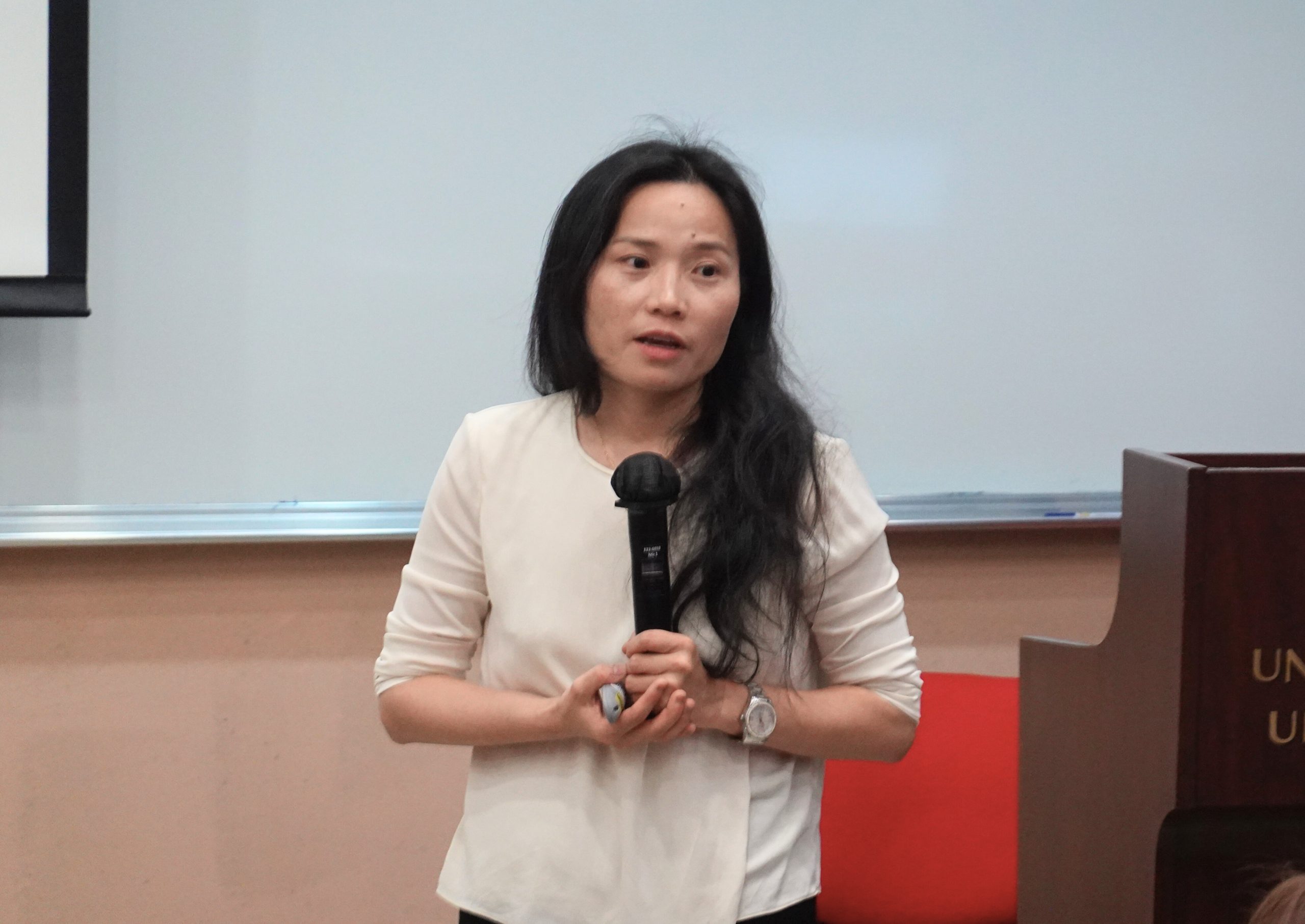
Prof. Liang Wang shared findings on the “Impact of Facial Recognition Payment on Tourists’ Pro-environmental Behaviors”
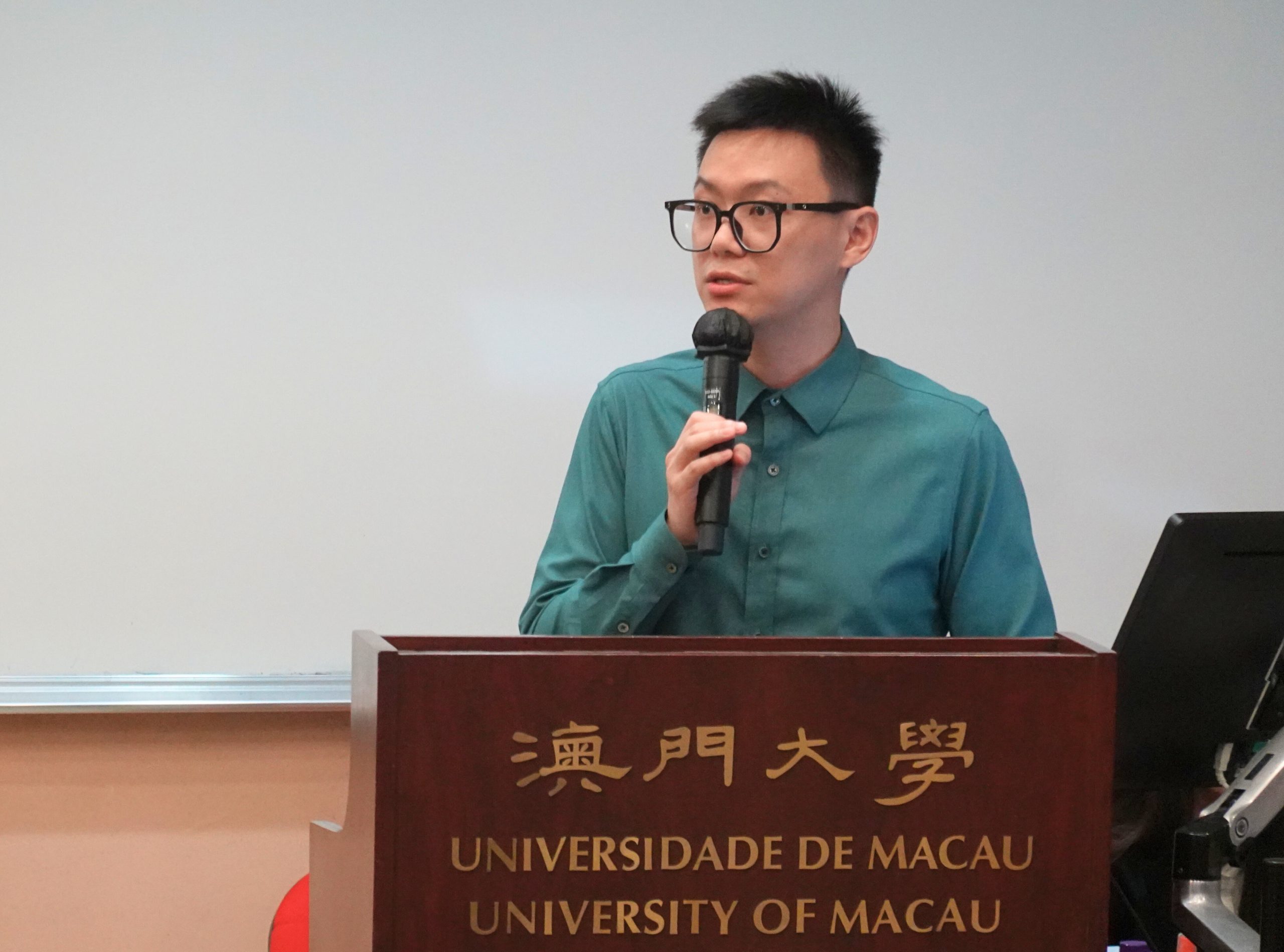
Prof. Ye Wang highlighted that travelers’ privacy concerns dynamically evolve across different travel stages
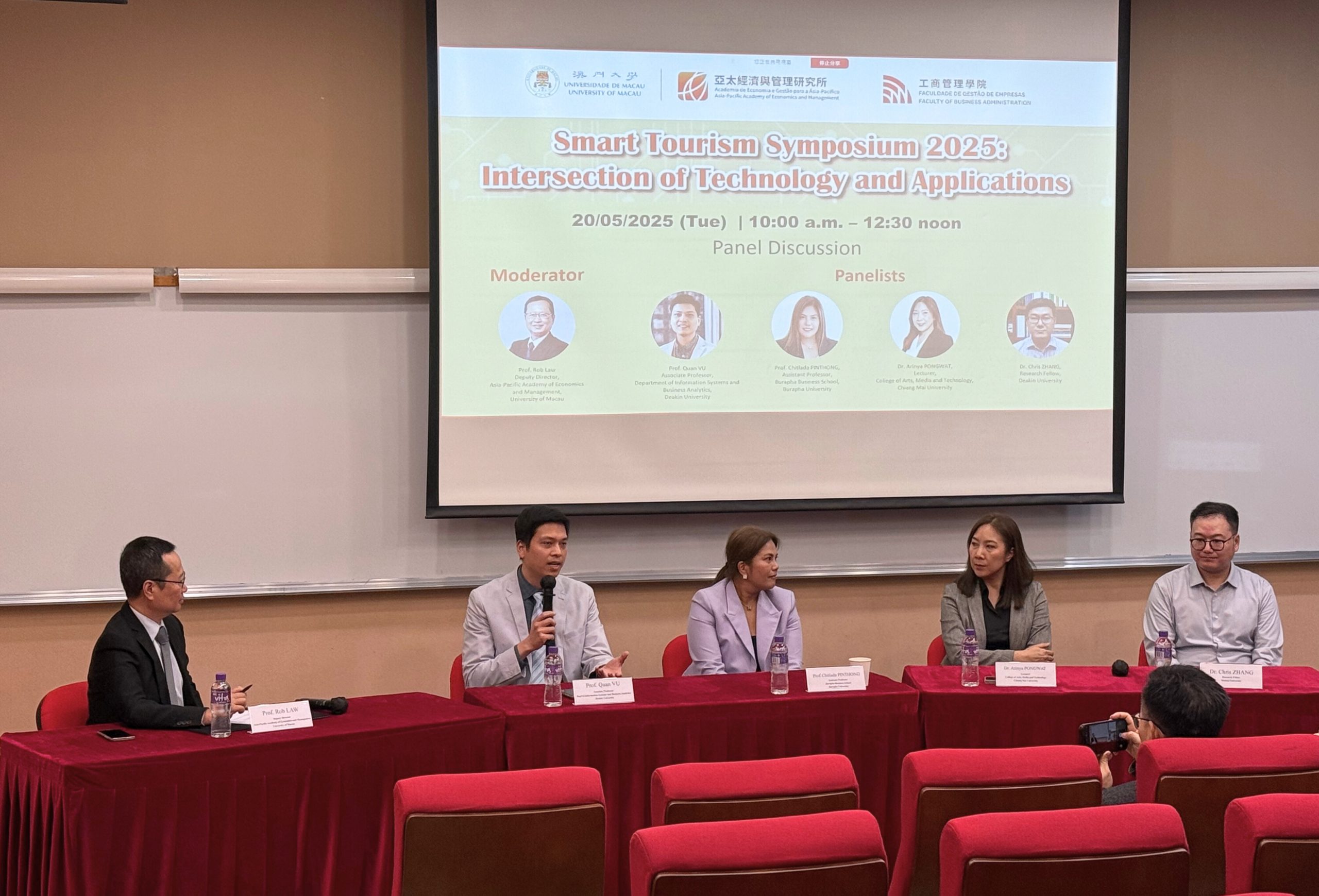
Panel discussion on the cross-disciplinary intersection of technology and applications in smart tourism
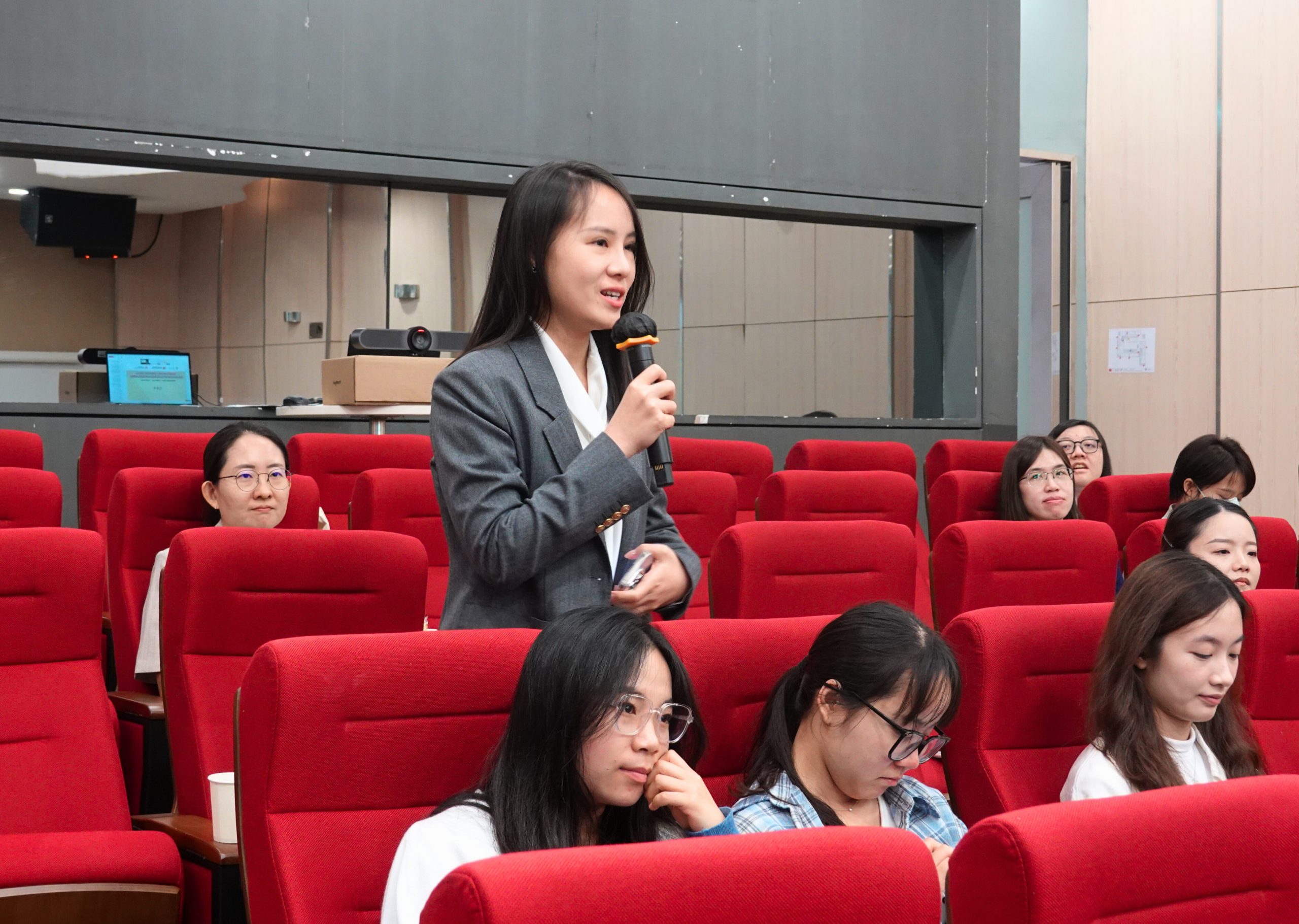
Q&A session
The “Smart Tourism Symposium 2025: Intersection of Technology and Applications,” hosted by the Asia-Pacific Academy of Economics and Management (APAEM) and co-organized by the Faculty of Business Administration of the University of Macau (UM), was successfully held on May 20. The symposium brought together scholars from Australia, mainland China, Thailand, and Macao, featuring keynote speeches by Prof. Gang Li, Professor of School of Information Technology at Deakin University, Prof. Liang Wang, Associate Professor of School of Management at Zhejiang University, and Prof. Ye Wang, Assistant Professor of Faculty of Science and Technology at UM. Additionally, Prof. Quan Vu, Associate Professor of Department of Information Systems and Business Analytics at Deakin University, Prof. Chitlada Pinthong, Assistant Professor of Burapha Business School at Burapha University, Dr. Arinya Pongwat, Lecturer of College of Arts, Media, and Technology at Chiang Mai University, and Dr. Chris Zhang, Research Fellow from Deakin University, participated in a panel discussion. The symposium aimed to foster interdisciplinary and cross-regional academic exchange, facilitating in-depth dialogue on the innovative applications of big data and artificial intelligence in the tourism industry, thereby providing international perspectives and practical pathways for the development of smart tourism in Macao.
At the beginning of the symposium, Professor Rob Law, Deputy Director of APAEM, delivered a welcome speech and reviewed Macao’s achievements in smart tourism development and emphasized the importance of integrating technology and applications to enhance the competitiveness of tourist destinations. Subsequently, Prof. Gang Li delivered a keynote speech titled “Experience-based Competitiveness Analysis: An AI-driven Approach.” He proposed an innovative AI framework that combines counterfactual reasoning and sentiment analysis to provide data-driven optimization strategies for destination competitiveness evaluation. Prof. Liang Wang shared findings on the “Impact of Facial Recognition Payment on Tourists’ Pro-environmental Behaviors.” Drawing on six experiments, she demonstrated how this payment technology promotes eco-friendly actions through a self-enhancement mechanism, and discussed the moderating roles of self-esteem and peer presence. Lastly, Prof. Ye Wang presented on “Tourists’ Privacy Concerns and Managements in Smart Tourism,” highlighting through systematic literature review, questionnaires, and interviews that travelers’ privacy concerns dynamically evolve across different stages—from trip-planning to post-trip interactions—and proposed human-centric privacy-design recommendations.
During the panel discussion moderated by Prof. Rob Law, Prof. Quan Vu, Prof. Chitlada Pinthong, Dr. Arinya Pongwat, and Dr. Chris Zhang engaged in an in-depth dialogue on the cross-disciplinary intersection of technology and applications in smart tourism, exploring key factors for advancing smart tourism research through interdisciplinary collaboration, creating a vibrant atmosphere. In two Q&A sessions, attendees enthusiastically discussed hot topics such as AI model interpretability and privacy protection policy coordination, while the speakers shared their extensive cross-disciplinary research experiences. The event attracted active participation from faculty, students, and researchers both within and outside the university. Participants unanimously agreed that the symposium not only deepened their understanding of cutting-edge issues in smart tourism but also established a new platform for international cooperation in the Guangdong-Hong Kong-Macao Greater Bay Area and the Asia-Pacific region, injecting new vitality into the high-quality development of smart tourism in Macao.

